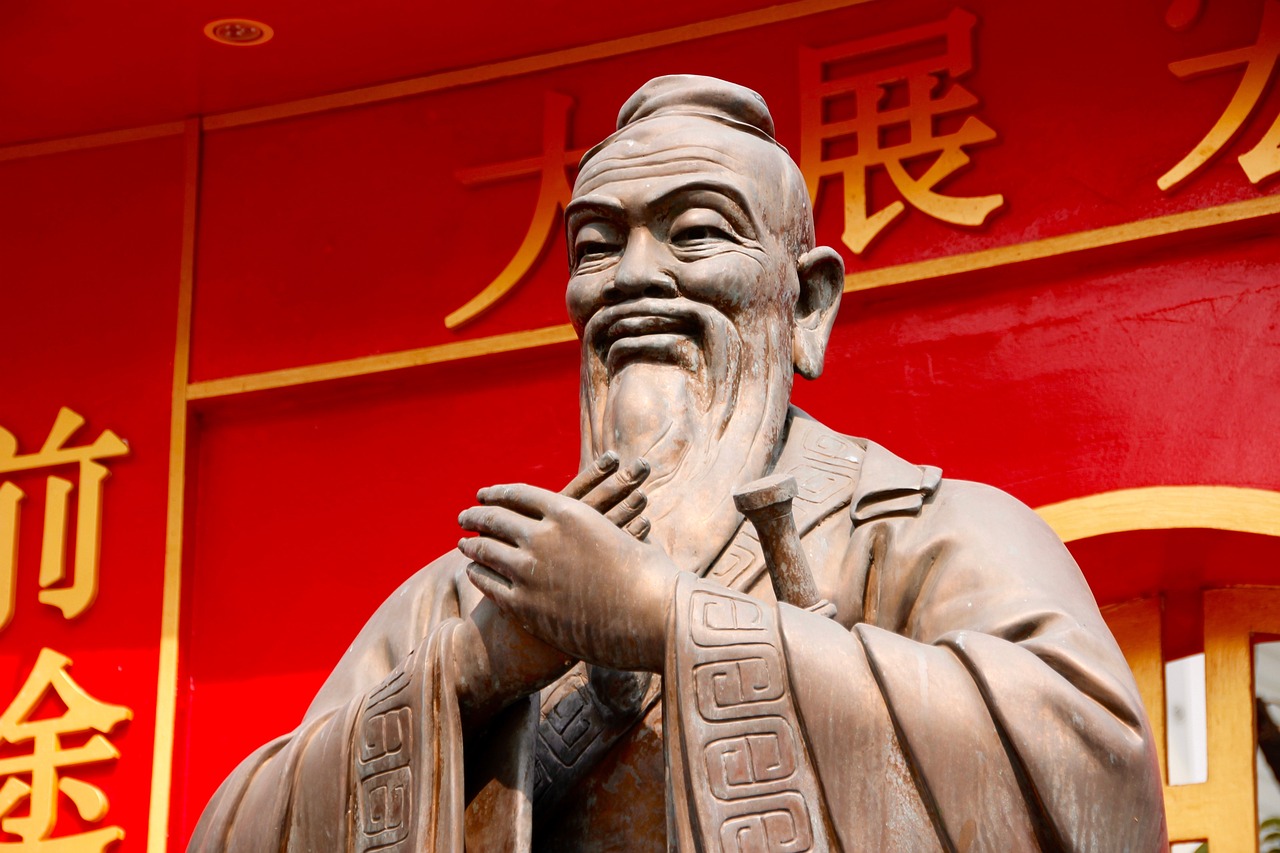
Confucius was born in 551 BC in a time of tyranny and chaos in China. As a result of this instability, society began to break down. Confucius observed that people were becoming more and more immoral and saw it as his duty to reinforce the old ideas of compassion and self-discipline in the troubled society of which he was a part. One of Confucius's most famous teachings is known in English as the Golden Rule: "What you do not want done to yourself, do not do to others." According to Confucius, if rulers acted in this way, they would be charitable and kind toward their subjects, and the common people would be good to each other. Confucius practiced his own ideals during his lifetime and remained open to teaching anyone, regardless of class or social background. This is how he came to earn affectionate titles such as the Great Sage and First Teacher. His method was often not one of preaching, but rather one in which students would be encouraged to arrive at great truths through their own reasoning. Confucius believed that for society to function, there must be a hierarchy in place. He deemed filial piety to be crucial in fulfilling these roles. That means a son must honor his parents, a young person must honor his elders, and the population must honor the emperor, who in turn will rule them with wisdom and kindness. This filial piety, however, was not to be abused and exploited for personal gain. In Confucius's words, "The mind of the superior man is conversant with righteousness; the mind of the mean man is conversant with gain." To put it another way, the righteous person will heed his role in society and perform his duties well, while the inferior person will think only of his own personal benefit. It was important to challenge those who were behaving poorly, even if they were higher up in the social hierarchy. In short, Confucius saw human civilization as a kind of puzzle, one in which peace would prevail if the puzzle pieces were in their proper place.
孔子生於西元前551年,當時正值中國暴君當政、社會紛擾的時期。動盪不安使得社會制度開始崩解,孔子發現人民道德日漸淪喪,而身為動盪社會的一分子,他認為自己有責任鞏固仁慈與律己的傳統思想。孔子最有名的一句教誨「己所不欲,勿施於人。」在英文裡也是待人處事的金科玉律。孔子認為,假如統治者都能把這句話奉為圭臬,必能慈愛他的人民,百姓也會彼此友愛。孔子終其一生都在實踐他的理想,他抱持著寬大的胸襟,對學生不分階級和社會背景,一律有教無類,因此後來獲得「至聖」和「先師」等尊稱。他往往不以說教的方式教學,而是鼓勵學生藉由推理領悟偉大的真理。 孔子認為一個社會若要正常運作,必須有適當的階級制度,而孝道是維繫人人各司其職的關鍵,也就是說,子女必敬愛父母、晚輩必敬愛長輩、人民必敬愛君主,君主自然會以智、德待民。然而,不能為了一己之私而濫用或利用孝道,子曰:「君子喻於義,小人喻於利。」換句話說,君子會注意自己的社會角色,盡到自己的責任,而小人只想到自身的利益。重要的是,居上位者若是行為失當,一樣要接受指責。總而言之,孔子認為人類演化的過程就像是一面拼圖,如果每一片都拼對了位置,就能達到大同世界。 |
沒有留言:
張貼留言